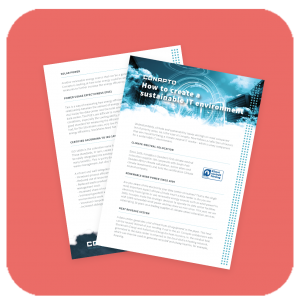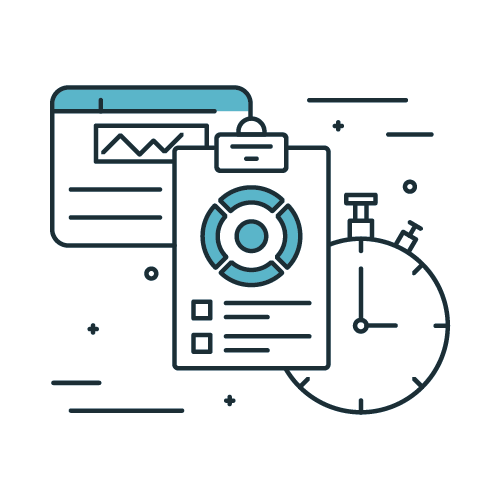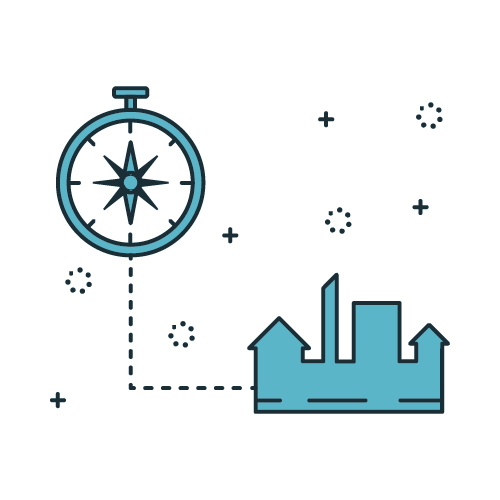In a digital world, data centers are an important and power-demanding infrastructure. Many data centers run on fossil fuel and as of today, the data center industry consumes as much energy as the flight industry did before the corona pandemic. But it is possible to run sustainable data centers. Conapto’s three data centers in the Stockholm area are now certified globally with the certificate Fossil Free Data. That means that they meet strict requirements on energy-efficiency, low carbon monoxide pollution and a usage of 100% renewable electricity sources.
Digitization and an increased usage of data is often considered environmental friendly, but as many data centers run on fossil fuel it can actually have a large negative impact on the environment. Today, data storage represents a bit more than 2% of the global carbon monoxide pollution and 3 % of the global energy consumption. This places the data center industry in the same spectra as the flight industry according to the scientific newspaper Nature.
Learn more: Why IT matters for your sustainability strategy
The certificate Fossil Free Data guarantees that a successful and active work is being conducted with sustainability and that strict requirements are met when it comes to energy usage. Conapto being certified with Fossil Free Data is a clear signal that we handle our customers data in a sustainable way, for our common climate.
“We have worked very focused with our sustainability strategy and the goal is clear, we should be the sustainable option for colocation and data centers in Stockholm. Fossil Free Data is proof that we are on the right track and we are truly proud to be one of the first companies in Sweden accomplishing this.” says Håkan Björklund, CEO at Conapto.
“Us certifying Conapto not only shows that they have a unique position for sustainable data centers, but also that they lead the way for environmental friendly data usage. This is a big step in the right direction and we happily hand them the certificate.” says Partrik Öhlund, CEO at Node Pole.



 CONTACT ME
CONTACT ME  NEWSLETTER
NEWSLETTER  SITE TOUR
SITE TOUR